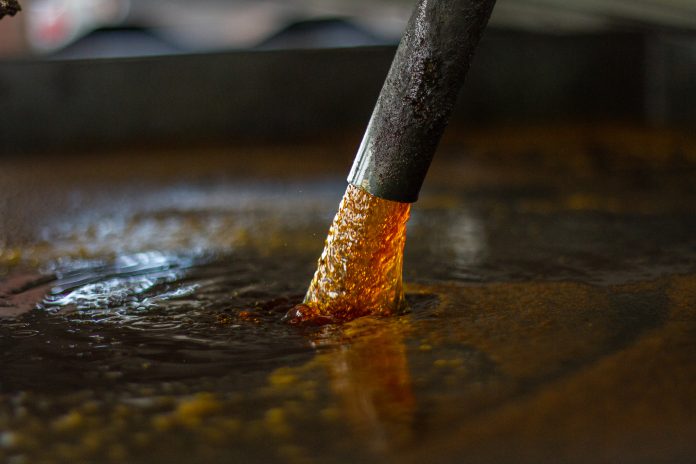The European Commission today decided that palm oil is not a green fuel and should not be promoted because it causes deforestation. The use of palm oil in diesel, which is driven by the EU’s renewable energy targets, will be gradually reduced as of 2023 and should reach zero in 2030 although exemptions remain.
“As foreseen by the recast Renewable Energy Directive adopted by the European Parliament and Council, which has already entered into force, the Commission has adopted today a delegated act setting out the criteria for determining high ILUC-risk feedstock for biofuels (biofuels for which a significant expansion of the production area into land with high-carbon stock is observed) and the criteria for certifying low indirect land-use change (ILUC)–risk biofuels, bioliquids and biomass fuels. An Annex to the act demonstrating the expansion of the production area of different kinds of crops has also been adopted,” specifies a press release.
“It’s time to end for good unsustainable biofuels that destroy forests and damage biodiversity. In the future only sustainable biofuels such as those produced with recycled vegetable oils, leftovers from the wood pulp sector, and biomethane from litter” Giorgio Zampetti, Executive Director at Italy’s Legambiente
Europe’s federation of green transport NGOs, Transport & Environment (T&E), said the labelling of palm oil as unsustainable is a milestone in the fight to recognise the climate impact of burning food for energy.
However, in a bid to placate palm oil producing countries such as Malaysia, Indonesia and Colombia, the Commission introduced a number of exemptions – which were tightened after an earlier draft. These loopholes mean some palm oil could still be promoted as a “green” road fuel. The Commission also failed to classify soy, a major contributor to deforestation worldwide, as unsustainable.
“Today’s decision to label palm oil as unsustainable is a breakthrough. It will offer much needed relief to the world’s wildlife and forests. But this is only a partial victory since soy and some palm oil can still be labelled green. This campaign is not over and we’ll be taking the fight to those governments and oil companies that want to keep forcing drivers to pay for fake ‘green’ fuels,” said Laura Buffet, clean fuels manager at T&E.
A difficult decision
The EU is the second largest importer of crude palm oil in the world. More than half of palm oil imported into the EU (around four million tonnes) is currently used to make ‘green’ fuel. Seven in 10 Europeans oppose the use of palm oil in diesel and over 650,000 Europeans signed petitions to stop it.
“Belgian people know palm oil production can be very destructive of the environment and the climate. But most of them just ignore that 63.000 cubic metres of palm oil has been blended in the diesel fuel sold in Belgian gas stations last year. Once people know, most agree this should come to an end” Noé Lecocq of Inter-Environnement Wallonie (Belgium)
It’s been a very controversial measure since the very beginning, with palm oil and soy producers on one side and European civil society, farmers, the environmental movement and the European Parliament and the Council (the two ‘elected’ European Institutions) on the other.
It has opened a rift within the Commission itself, with some Commissioners in favour of the solution EU citizens are demanding and some trying to weaken the Act for the sake of trade deals and diplomatic relationships with ASEAN countries.
During the four-week public consultation (February 8th to March 8th) more than 65,000 ordinary citizens participated, overcoming the clunky and unfriendly mechanism set up by the Commission, to send a clear message to Juncker’s Commission: “Amend the Act or it will be rejected by Parliament”.
A landmark study for the European Commission revealed that biodiesel from palm oil is three times worse for the climate than regular diesel while soy oil diesel is two times worse. This is because growing demand for biofuels like palm oil increases pressure on agricultural land which leads to deforestation – in the case of palm oil in tropical regions.
“The message sent by citizens is clear: we don’t want palm oil in our tanks. And it’s strongly politically backed by the EU Parliament. The decision of the Commission will be a stress-test for EU institutions credibility, just before decisive political elections” Sylvain Angerand, spokesman of Les Amis de la Terre France and founder of Canopée (France)
The act adopted by the Commission will be reviewed in 2021. T&E and its partners will be monitoring the likely abuse of the loopholes closely and are calling on national governments to follow France’s example and completely eliminate all palm oil from biofuels after 2020.
“There is no such thing as green palm oil or soy biodiesel. Governments and oil companies thinking they’ll be able to get away with forcing motorists to burn food in the future should think twice. The fuels of the future aren’t based on food, they’re based on sustainable wastes, residues and electrons,” said Laura Buffet.
EU member states and the EU Parliament have two months to pass or veto the act, but they have no power to amend the rule. A vote in the environment committee of the European Parliament has been scheduled for 21 March.

